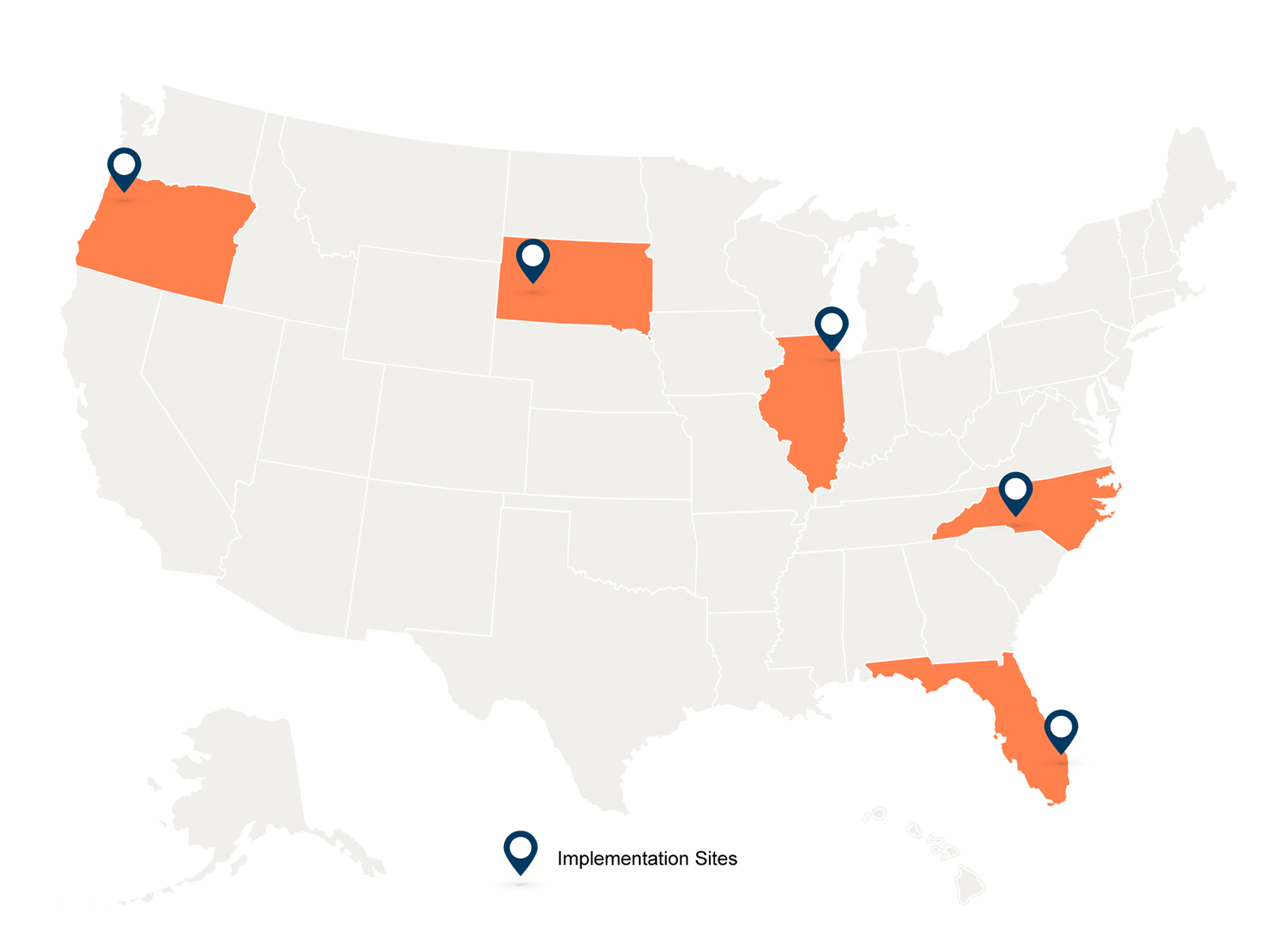Reflecting significant momentum for criminal justice reform in communities across the country, the MacArthur today announced an additional $8.1 million in grants through its Safety and Justice Challenge, a national initiative to reduce over-incarceration by changing the way America thinks about and uses jails.
The new funding is being awarded to five counties—Cook County (IL), Mecklenburg County (NC), Multnomah County (OR), Palm Beach County (FL), and Pennington County (SD)—that are already working to reduce over-incarceration and address racial and ethnic disparities in local criminal justice systems. To date, MacArthur has awarded more than $217 million through the Safety and Justice Challenge.
Challenge sites across the country are seeing the impact of reforms designed to create fairer, more just, and more effective justice systems that protect public safety. For example, since joining the initiative, Philadelphia County, New Orleans, St. Louis County, Cook County, Lucas County, and New York City have all reduced their jail populations by more than 25 percent. The five sites receiving additional funding today have set ambitious goals to similarly reduce their jail populations in the coming years.
Five Sites Receiving Additional Support and Funding
- Cook County, IL - $2.5 million
- Mecklenburg County, NC - $1 million
- Multnomah County, OR - $2 million
- Palm Beach County, FL - $1.4 million
- Pennington County, SD - $1.2 million
Five years after its launch, MacArthur’s Safety and Justice Challenge Network has grown into a collaborative of 51 jurisdictions across 32 states modeling and inspiring reform. It supports local leaders who are addressing a fundamental driver of over-incarceration in America—the misuse and overuse of jails. Jurisdictions participating in the Safety and Justice Challenge are reforming local justice systems by identifying key drivers of incarceration and racial disparities locally, engaging diverse groups of stakeholders and community members, and working to implement forward-looking solutions.
“Local jurisdictions are proving it is possible for cities and counties to rethink justice systems from the ground up, despite challenges and an ever-changing political environment,” said Laurie Garduque, MacArthur’s Director of Criminal Justice. “MacArthur remains committed to supporting jurisdictions as they set ambitious reform goals and pursue smart solutions that safely reduce jail populations, address disparities, and eliminate ineffective, inefficient, and unfair practices.”
Today’s award of additional funding will enable these five jurisdictions to build on their work to eliminate practices that take a particularly heavy toll on people of color, low-income communities, and people with mental health and substance abuse issues. Their locally-driven strategies range from processing cases more efficiently to enhancing pretrial services and alternatives to incarceration for people experiencing mental illness, substance use issues, or homelessness.
“The Safety and Justice Challenge has been crucial in helping us make headway as we work to eliminate over-representation of Native Americans in our local justice system in Pennington County,” said Liz Hassett, Safety and Justice Challenge Grant Manager in Pennington County, SD. “This additional grant support will help us continue to engage and rebuild trust with local tribal communities as we work to create a fairer and more effective local justice system.”
The Safety and Justice Challenge brings together many of the nation's leading criminal justice organizations to provide technical assistance and counsel to the jurisdictions: the Center for Court Innovation, Everyday Democracy, Nexus Community Partners, the Institute for State and Local Governance at the City University of New York, JFA Institute, the Justice Management Institute, Justice System Partners, the Pretrial Justice Institute, Policy Research, Inc., the Vera Institute of Justice, the W. Haywood Burns Institute, Urban Institute, and Bennett Midland.




